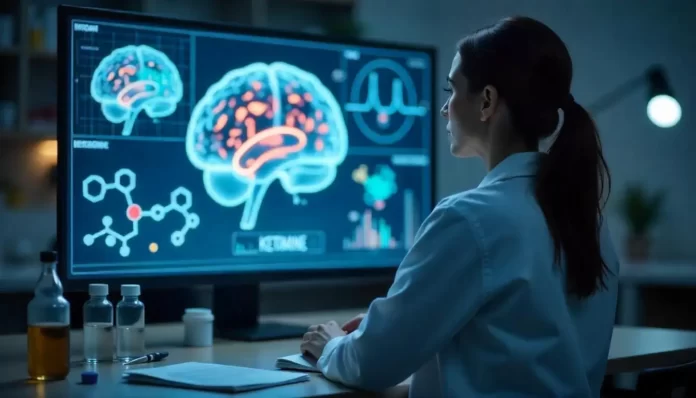Once known mostly as an anesthetic and later as a party drug, ketamine is now emerging as one of the most promising breakthroughs in mental health treatment. Researchers are increasingly asking: Can ketamine’s powerful antidepressant effects be harnessed without the hallucinogenic “trip”?
A Medical Marvel with a Psychedelic Past
Ketamine’s dual identity, both a clinical tool and a recreational substance, has long complicated its public image. While its dissociative effects earned it notoriety in nightlife circles, those same qualities have turned heads in psychiatric research, especially for treatment-resistant depression and anxiety.
Unlike traditional antidepressants, which often take weeks to kick in, ketamine has been shown to deliver relief within hours. But there’s a catch: its psychoactive effects. That’s leading scientists to explore whether it’s possible to retain ketamine’s rapid therapeutic benefits without the mind-altering experience.
Can You Get the Benefits Without the Trip?
One emerging strategy involves administering ketamine under sedation or while patients are asleep. The idea is to allow the drug to work on the brain, increasing neuroplasticity and lifting mood without the patient experiencing dissociation or hallucinations.
If this approach proves effective, it could revolutionize psychiatric treatment. It would also make ketamine-based therapies more appealing to patients hesitant about psychedelic experiences, expanding access to those in need.
The Science Behind It
Ketamine works by blocking NMDA receptors in the brain, which enhances synaptic plasticity, the brain’s ability to form new connections. This is thought to play a key role in its antidepressant effects.
New research is also investigating ketamine metabolites, which are byproducts of how the drug is processed in the body, that may retain antidepressant properties without causing dissociation. These findings could pave the way for next-generation drugs that offer the same benefits without altering consciousness.
Bigger Implications for Psychedelic Medicine
Ketamine’s evolving role is prompting a broader rethinking of psychedelics in medicine. Researchers are now exploring whether other compounds like psilocybin and LSD might also be separated from their hallucinogenic effects while still delivering mental health benefits.
This shift has sparked debate. Advocates say it could bring faster relief to more people, while critics warn of ethical concerns, especially around informed consent and long-term impact when consciousness-altering effects are removed from the equation.
What’s Next?
As pharmaceutical companies partner with academic institutions to push the research forward, the goal is clear: to create fast-acting, effective psychiatric treatments that don’t rely on the psychedelic experience. If successful, this could reshape how we treat mental illness from a slow, trial-and-error process to a more immediate and personalized approach.
Still, the path forward is complex. Scientists must balance innovation with caution, ensuring treatments are both effective and ethically sound. But the potential is undeniable: a future where rapid mental health relief is widely available, no trip required.


